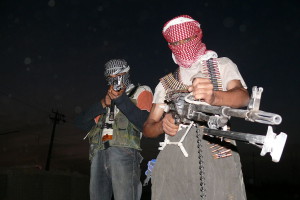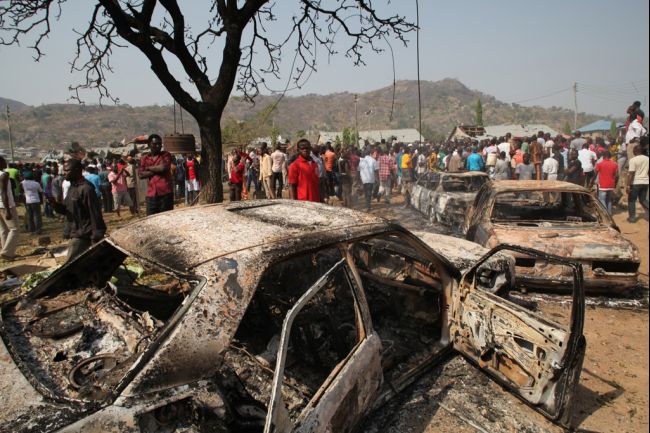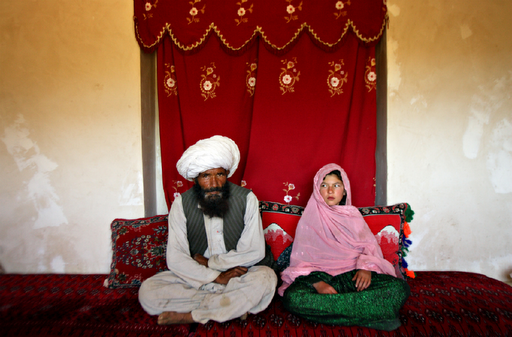Jihad has entered into our modern lexicon as a term used to describe an act of religiously-motivated violence waged on the enemies of Islam in an effort to usher in a new political order governed by Sharia, or Islamic law. The word Jihad translates from Arabic into “struggle”, and can be used in both an external or physical, and internal or mental and spiritual, struggle. The motivation for physical Jihad tends towards the imposition of a divinely-sanctioned world order free of the sins of modern-day “Babylon” by means of martyrdom, interpreted by Jihadis as an act of cleansing and rebirth.
The moral contradictions of those who believe in physical Jihad are evident from the outset. A Jihadi conceptualization of Islam, which translates to “peace” in Arabic, calls for the violent exertion of power over the political Other through Jihad, in order to attain a state of non-violence governed by Islamic ideals.

The modern-day Jihadi movement fails to recognize Just War principles, which are essential to ‘legitimate’ warfare. Contemporary understanding of Just War Doctrine, as developed out of Catechism 2309 of the Catholic Church, necessitates four key pre-conditions for a Just War. First, “the damage inflicted by the aggressor on the nation or community of nations must be lasting, grave, and certain”. Secondly, “all other means of putting an end [to the threat posed by the enemy] must have been shown to be impractical and ineffective”. Thirdly, “there must be serious prospects of success”. And finally, “the use of arms must not produce evils and disorders graver than the evil to be eliminated”.
The Quran itself contains a number of passages on Just War, of which two are particularly important. First, in Chapter 17 verse 33, the Quran specifically condemns taking the life of another “which God has made sacred — except for just cause. And if anyone is slain wrongfully, We [God] have given his heir authority (to demand retaliation or to forgive): but let him not exceed bounds in the matter of taking life, for he is helped (by the Law)”. Additionally, in Chapter 22 verse 39, ‘just death’ is defined as that which “is given to those upon whom war is made because [the war makers] are oppressed [by the former], and most surely Allah [God] is well able to assist them”. In failing to limit the act of war to an identifiable political enemy and instead targeting the whole of Western civilization, waging war without a foreseeable end, and carrying out acts of terror which outweigh the benefits of an Islamic caliphate, the Jihadi movement fails to display legitimacy according to both Western conceptions of Just War as well as Islamic jurisprudence.
Philosophically speaking, the Islamist Jihad can never succeed due to its preoccupation with the total annihilation of the political Other (and the Other’s worldview, philosophy, politico-economic system, religion, etc.). According to the Hegelian dialectic, without the Other there can be no Subject, as the Subject requires the presence of the Other in order to define his own identity. That is to say, the Islamist is only the Islamist because he is not a Capitalist, a Christian, a Jew, a moderate Muslim, an atheist, etc., and he rejects Western democratic values. Therefore, without Christianity, Judaism, atheism, and Western democracy, there can be no Islamist.
 In setting out to annihilate the Other as defined above, the Jihadist becomes as the Other, in that he creates a condition in which the Other is unable to live a free life of his own choosing and according to his own values without fear of harm. This parallels the Jihadist’s belief that the Other wants to create the same condition for him by means of the expansion of Western democratic and capitalist values.
In setting out to annihilate the Other as defined above, the Jihadist becomes as the Other, in that he creates a condition in which the Other is unable to live a free life of his own choosing and according to his own values without fear of harm. This parallels the Jihadist’s belief that the Other wants to create the same condition for him by means of the expansion of Western democratic and capitalist values.
For the Jihadist, self-annihilation presents an opportunity to overcome many of the contradictions inherent to Jihad without obstructing its core objectives. Self-annihilation would allow the Jihadist to observe a moment of sovereign activity independent of the Other, thereby allowing him to break his ties to the Other. Carrying out an act of self-annihiliation would additionally ensure that no innocent blood be spilled, and would ascribe a mythic value to the act of Jihad, as the Jihadist would be considered a martyr willing to die for his beliefs. As a martyr, the Muslim self-annihilator would obtain a position of righteousness, and would be guaranteed a place in paradise.




